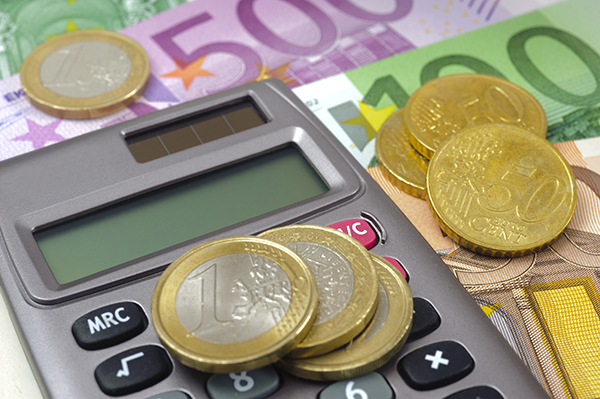Cash is being used less and less each year in the Netherlands. In recent times, factors like the Covid crisis and measures to trace and control money laundering have contributed to accelerate this process, amidst a generational change in consumer behaviour favoring a transition to a cashless society. Will cash disappear in the near future?
While electronic forms of payment are increasingly gaining ground as compared to cash transactions everywhere, the Netherlands seems to be particularly advanced in this regard compared to the rest of Europe. A study by the European Central Bank (ECB) released in 2020 showed that the Netherlands, closely followed by Finland, is the country in the Euro zone which uses cash the least, with less than 35% transactions being completed in cash. This is a rather small percentage in comparison to neighbouring Belgium and Germany with 58% and 77% of cash transactions respectively, and countries like France at 59%, Spain at 83% and Italy at 82%.
The Nederlandsche Bank (DNB) periodically publishes research documenting the evolution of this trend. In 2018, 39% of transactions in the Netherlands were made in cash, compared to 60% in 2014: a 21% jump in four years. More recently, in June, DNB published a study reporting that, although three quarters of Dutch would still be like to use cash as payment in 5 years, almost half expect to use cash less often than now. This has a generational component: 71% of young people expect to use cash less often in 5 years, compared to 60% of middle-aged people and 63% of the elderly. Although a cashless society is practical in many ways, DNB warns that the elderly, along with vulnerable groups, particularly need cash in their daily lives, so it should remain available and accessible in the short and medium term, along with the infrastructure to support its use.
The Covid crisis has accelerated the transition to cashless transactions in a short period of time. According to DNB data, before the pandemic 32% of payments were made in cash, while in October 2020, among a generalized a fear of Covid transmission and the encouragement of contactless transactions, that percentage had decreased to 20%. And while the fear of Covid transmission may have diminished by now, much of these newly acquired consumer behaviours will remain, even among people who traditionally used cash, but were forced to transition to contactless payments. This comes on top of recent bank incentives encouraging customers to switch, with discounts for withdrawing less money from ATMs and higher costs for using them, as well as fewer ATMs available for customers throughout the country. Shops and retail establishments are also more actively encouraging card payments, due to logistical perks and to users getting rid of a “pain of payment” psychological behavior, related to the struggle of spending actual material money. Most users seem to find cashless payments just more practical as well.
Organized crime and related anti-money laundering laws are also playing a role. Starting 1 October, Rabobank introduced a €5 fee when depositing €200 and €500 banknotes, a rare sighting for most people (€500 notes have not been reprinted since 2019), but more commonly in use in criminal circles. Rabobank argued that more control is required in order to trace suspicious activities, and this means higher costs, which have to be balanced with costumer deposit fees. In connection, outgoing Finance minister Wopke Hoekstra sent a letter to parliament in September advocating for a limit of €3000 in cash payments, in an effort to disincentivize money laundering. Along with Belgium, Italy and Spain, he pleaded in the European Commission for a limit of €5000 in cash payments in the Euro zone. The VVD equally suggested a sort of cash ban in the city of Rotterdam, including fines for carrying more than €2000 in cash, and limiting cash payments in establishments such as clothing stores to €500.
Although several factors are indeed pushing for cash to disappear in the future, DNB’s position is that efforts to make transactions more practical and efficient and to reduce money laundering should not affect the legitimate right to use cash and its infrastructure. In fact, 96% of Dutch businesses still accept cash payments, despite the usage trend in the opposite direction. Indeed, there are groups that choose or have no choice but to continue to use cash in their daily lives. Government authorities in the Netherlands and in Europe want to make sure that people can still exercise their right to use cash, whether they have to or choose to, for the foreseeable future. They are developing policies to ensure this, like the EBC 2030 strategy that aims to preserve cash as available, attractive, reliable and competitive. So, while cash might disappear in the future, it seems that it will not happen be in the short to medium term.
Written by Juan Álvarez Umbarila
